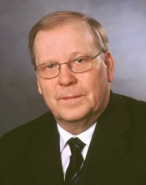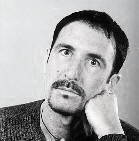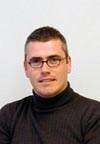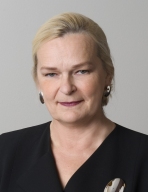Speakers
Hannes Manninen

Minister of Regional and Municipal Affairs, Ministry of the Interior, Finland
Mr. Hannes Manninen has been Minister of Regional and Municipal Affairs and Minister at the Ministry of the Environment (housing) since 2003. The Ministry of the Interior promotes security and balanced development in Finland, is responsible for the overall development of regional administration, is stating local administration and population registers, provides the basic legal and financial preconditions for the country's self-governing municipalities, promotes the equitable and independent development of different parts of the country, maintains public order and security, supervises rescue services, deals with matters concerning Finnish citizenship, immigration and asylum as well as is responsible for guarding the country's borders.
Michael Storper

Professor, London School of Economics, UK
Dr. Michael Storper is Professor of Economic Geography at London School of Economics. He joined the Department in October 2000 as LSE Centennial Professor of Economic Geography. He divides his time between the School and the Institute of Political Studies (Sciences Po) in Paris. He has formerly been at the University of California as Professor of Regional and International Development in the Department of Urban Planning since 1992. His research interests and areas of supervision are: Globalisation and local and regional economic development processes, The effects of liberalised trade and technology flows on global location patterns, The role of local economic policies in influencing the effects of globalisation in local and regional economies, The overall geography of the global economy: changes and continuities in location and specialisation patterns, Face-to-face contact as a source of urbanisation economies, The effects of new communications technologies on face-to-face contact and delocalization and Comparative regional development processes.
Professor Storper is an internationally recognised scholar and author, particularly well known for his books which include The Capitalist Imperative: Territory, Technology and Industrial Growth (with R. Walker; Blackwell, 1989, Pathways to Industrialization and Regional Development (with A. Scott; Routledge, 1992), Worlds of Production: The Action Frameworks of the Economy (with Robert Salais, Harvard Univ. Press, 1997), The Regional World: Territorial Development in a Global Economy (Guildford Press, 1997), and Latecomers in the Global Economy (editor with L. Tsipouri and S. Thmodakis; Routledge, 1998).
Michael Keenan

Dr., Lecturer, Policy Research in Engineering, Science and Technology (PREST), University of Manchester, UK
Dr. Michael Keenan is Lecturer at PREST, University of Manchester. His research interests lie in the production and utilisation of 'strategic intelligence', such as that generated by evaluation and foresight studies. Over the last decade or so, Keenan has been involved in a number of evaluation studies, including evaluations of the UK Foresight Programme. He is also Books Review Editor for the journal Research Evaluation.
On the foresight front, Keenan has been involved in numerous projects, many funded by the European Commission. These have included mapping foresight activities in Europe, developing foresight guides for social and regional foresight, conducting future-oriented reviews of leading economic sectors, and examining the future of EC RTD cooperation with the developing world.
As for teaching activities, Keenan is a major contributor to the PREST MSc Programme and is Course Director for PREST’s Executive Education Programme, which includes the annual Foresight and R&D Evaluation courses. Internationally, he is regularly retained by UNIDO to design and teach their Foresight courses in various parts of the world, and is also a member of the International Advisory Group at the Finland Futures Academy. He has advised more than a dozen countries on their foresight activities and was also a member of the Steering Committee for the JRC-IPTS Enlargement Futures Project (2001), and a member of the EC's High Level Expert Group on Regional Foresight (2002).
Riel Miller

Dr., XperidoX: Futures Consulting, France
Dr. Riel Miller is a Faculty Member in the Masters of Public Affairs at the Fondation Nationale des Sciences Politiques (Sciences Po), Paris, France; Senior Visiting Fellow at the Danish Technological Institute, Copenhagen, Denmark; Associate at Demos, London, UK, and Founder of: XperidoX: Futures Consulting – “Scenarios that change decisions today”, Paris.
Miller is a specialist in long-run strategic thinking. For over two decades his work has concentrated on how to assess and direct the potential for socio-economic transformation in the private and public sectors. He is one of the world’s leading practitioners of scenario methods and designs cutting-edge “hybrid strategic scenarios” for clients around the world. Recent clients include Philips Design, The Renault Foundation, DG Research, Scottish Enterprise, Consortium for the Commercial Promotion of Catalonia, National Economic and Social Council of Ireland, Ministry of Labour Finland, Research Council of Norway, etc..
His extensive writing and speaking covers key topics, including the future of: money, universities, research, schooling, the Internet, telecommunications, Canada, the knowledge society, etc.. He recently edited a book for the OECD on the personalisation of public services. He is author of the book Measuring What People Know: Human Capital Accounting for the Knowledge Economy. He is Rapporteur for the forthcoming publication from the European Commission expert panel on “The Future of Key Research Actors in the European Research Area”.
Sinikka Salo

Dr., Member of the Board, Bank of Finland, Finland
Dr. Sinikka Salo has been Member of the Board of the Bank of Finland since 2000. Her experience as a researcher and economist includes working for the European Central Bank and the European Monetary Institute 1995-2000, the Bank of Finland 1990-1995 as well as the Research Institute of the Finnish Economy (ETLA) 1974-1990. She has also taught at the University of Helsinki, and worked as acting associate professor of economics 1993-94. Ms. Salo was a member of the European Union Economic and Financial Committee (2000-2005) and is currently a member of the International relations Committee of the European System of Central Banks (ESCB). Ms. Salo has degrees in mathematics and statistics and holds a Dr. Sci. Pol. (PhD in economics) from the University of Helsinki.
Ms. Salo is the author of several monographs and has published articles in economic journals and books as well as in economic newspapers. In her latest book "Tahdon tähden" (in Finnish), Otava 2004, meant for a wider audience, she writes about the euro, European integration and globalisation as well as about her European and egalitarian missions.
Markku Wilenius

Professor, Finland Futures Research Centre, Turku School of Economics, Finland
Professor Markku Wilenius has acted as Director of the Finland Futures Research Centre in 1999-2001, as Research Director in 2002-2003 and again as Director from August 1, 2003. He was nominated as Professor of Futures Studies at the Turku School of Economics and Business Administration on November 14, 2003. Markku Wilenius is also Docent in the University of Helsinki.
Wilenius' interests in research and development focus on the development of the society and forecasting of development, visionary and strategic management of organisations in terms of their competence building as a way to "futurise" them, and sustainable development. In 2004 he published a book on creative economy and the meaning of cultural know-how, named "Cultural Competence as a Component of National Competitiveness". From the spring 2005 on, he has been on leave from the Centre's Director's post, focusing on leading a large research project "Managing Creative Knowledge Capital", which studies the potentials of competitiveness with 6 major Finnish corporations through assessing their innovativeness and renewal capability.
Wilenius is member of two boards, one set by the Finnish Ministry of Education and the other by University of Jyväskylä, which both promote and build grounds for cultural know-how and innovativeness as a national competitiveness resource. In 2002, Wilenius was appointed to the Club of Rome and in 2005 its Executive Committee. He has also acted as a chairman of the committee that prepared the national agenda of Finland for the UN summit meeting in Johannesburg 2002. Wilenius acts also as a vicechair of the executive committee of the Finnish Consumer Agency and acts as an expert in various Conference Advisory boards. His publications cover academic, economic and public forums about the current research issues as well as burning daily issues close to his heart. He is also a wanted speaker, and has made time to lecture on many different arenas.
William E. Halal

Professor, George Washington University, USA
Dr. William E.Halal is Professor of Science, Technology & Innovation at George Washington University, Washinghton DC. An authority on the knowledge revolution, emerging technology, strategic management, and institutional change, he has consulted for General Motors, IBM, AT&T, MCI, Blue Cross/Blue Shield, SAIC, International Data Corporation, the U.S. Air Force, foreign companies, and various government agencies.
Halal's work has appeared in journals such as Nature/Biotechnology, The California Management Review, Business in the Contemporary World, Strategy & Business, Knowledge Management Review, The Academy of Management Executive, Human Relations, Systems & Cybernetics, and Technological Forecasting, as well as popular media like The New York Times, The Christian Science Monitor, Advertising Age, Executive Excellence, and The Futurist. He has authored five books: The New Capitalism (Wiley, 1986), outlined the system of business and economics for the Information Age; Internal Markets (Wiley, 1993), describes how dynamic organizations replace hierarchy with internal market economies; The New Management (Berrett-Koehler, 1998), shows that democracy and enterprise are transforming organizations; The Infinite Resource (Jossey-Bass, 1998), includes chapters by 20 corporate CEOs and politicians on leading knowledge organizations; and 21st Century Economics (St. Martin's Press, 1999), explores the emerging global economy.
For the past decade, Professor Halal has been developing the GW Forecast, and its commercial outlet, TechCast. The project is an electronic network that pools the knowledge of experts around the world to forecast technological breakthroughs in all fields. It can be thought of as "A Virtual Think Tank Tracking the Technology Revolution."


